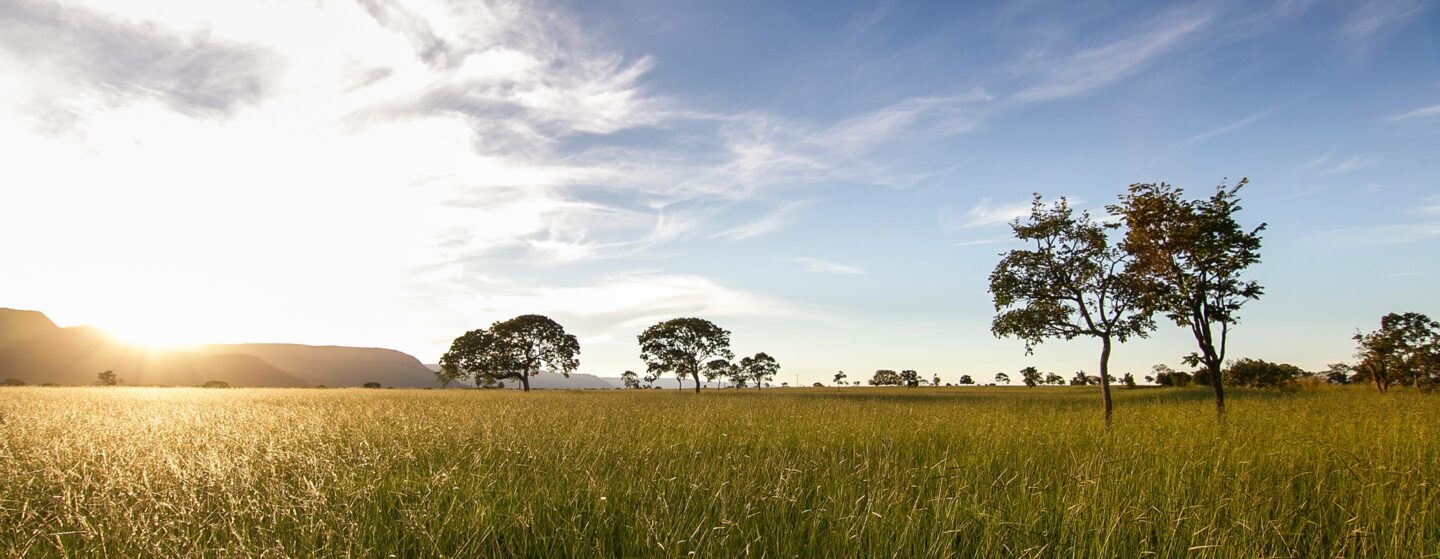
Yarn made from recycled PET bottles, certified by the GRS seal. Visually identical to virgin polyester yarn, with the same quality and resistance, it can be used in both the warp and weft of the product, resulting in a 100% recycled product.
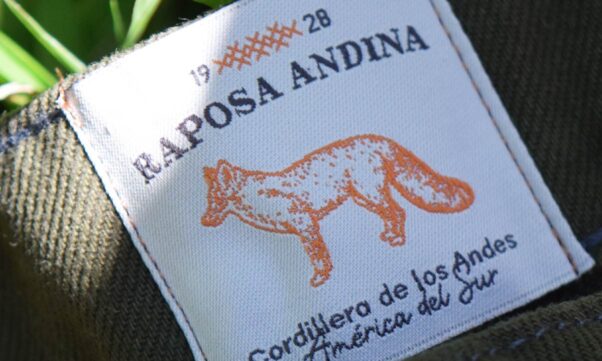
Cotton is a natural and biodegradable fiber, so it has less of an impact on the environment when it comes to disposal than synthetic fibers. It also has a super-soft feel and gives products a more rustic and natural look.

Yarn made from 100% organic bamboo fiber, certified by the FSC. A natural material from a highly renewable source. Features a velvety, super-soft touch, which adds even more value to the piece.

Material made from tannery waste, which instead of being discarded is reused and processed, resulting in “Recouro”. Available in two colors, the material can be customized with water-based screen printing and dry ink, making it a great sustainable option for decorative waistband labels.

Composed of 100% cellulose, this material is a great sustainable and biodegradable option, often used for decorative waistband labels. Also available in the “German zetex” option, an exclusive Haco product, where the material can be dyed in the color desired by the customer. The material accepts various types of finishes, cut-outs and finishes and is also certified by the FSC seal, the most credible international forest certification system.

Seal for clothing and tags, made of green polymer, a material from renewable sources, based on sugar cane. The material has an “OK BiobasedVinçotte” certificate, which guarantees that 94% of the material comes from biomass. The seals have recycled polyester cords and can be fully customized, from the color of the cord to the shape and internal design of the final product.

The main characteristic of biodegradable polyamide is its decomposition time, as it degrades in just five (5) years in a landfill, while conventional polyamide takes up to 50 years to go through the same process.
In addition to the benefit of rapid decomposition, the material has an incredibly soft touch, making it perfect for products for internal applications that will be in contact with the skin. This yarn is suitable for use in shoelaces, laces and collar covers.

Recycled paper has a more yellowish color and slight grooves. It accepts different types of finishes and can be used to produce anything from tags to bags and packaging.

Our sustainable practices extend far beyond the products we develop and produce. We believe that social programs and ecological actions help to promote a prosperous, fair, healthy and inclusive society, involving the community and sharing values.
For this reason, Haco supports various social and environmental projects.

We maintain 4 rural properties with a total area of 596,000m², of which 380,000m² is dedicated to reforestation with eucalyptus plantations. Our yarn processing unit uses reforested wood licensed by FATMA in its systems.
We have two water and effluent treatment plants that return the water to the river with the same purity as when it was captured. There is an average of 3.8 million liters of treated water per month, as well as a reservoir to capture and use rainwater with a capacity of 120,000 liters.
We changed the white warp in the woven labels to raw warp - which is completely natural and doesn't need any dyeing. As well as not altering the look of the final product, the change resulted in savings of 10 million 300 thousand liters of water over 10 years.
All our waste from the production and administrative areas is properly disposed of for each type of classification, with a selective collection system. Our disposal of unusable leftovers is done conscientiously, through an entity certified by environmental agencies that treats and disposes of industrial waste properly.
We reuse loom scraps and leftover fabrics from old collections to make cushions, which are used to decorate company events and are also made available in the employee lounge at our headquarters.
We distribute customized and sustainable giveaways to our customers, made with environmentally friendly materials. The bags and boxes for these giveaways are made from sustainable kraft paper, which uses fewer chemicals in its production process.
With a view to a day-to-day life with less plastic waste in the company, we have carried out initiatives such as replacing disposable cups with reusable ones in the cafeteria; distributing squeeze bottles to all employees at the moment of integration; and using biodegradable cups at all events and customer visits to the factory.
By distributing seeds and seedlings of native trees at all the events held by the company, we planted more than 5,000 trees in 2022.

We support the Pink October campaign organized by the Women's Network Against Cancer in Blumenau, a non-governmental, non-profit institution.
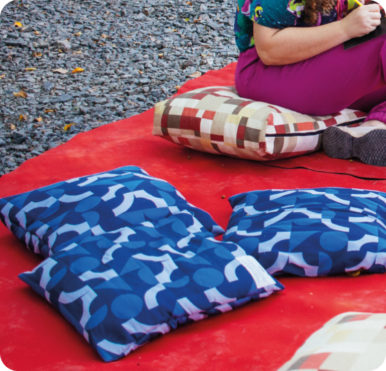
We supported the TEDx event, which was held in Blumenau. A totally independent non-profit organization, it relies on its volunteers and partner brands to assemble the entire structure and bring relevant conversations, debates, questions and discussions to the city of Blumenau.
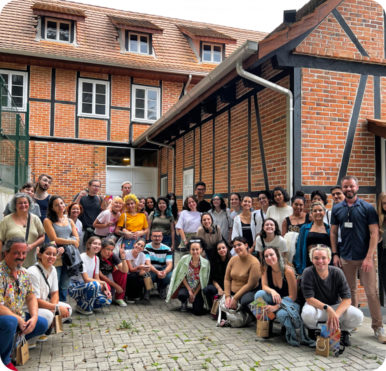
We have also established partnerships with various fashion colleges around the country, sending them a collection of materials, books and old products with the intention of encouraging systematic practices in the production of identification for fashion and design, as well as visits to our headquarters factory in Blumenau.
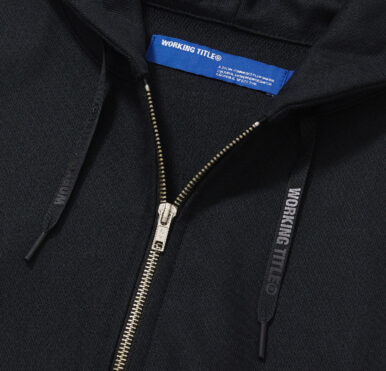
In order to encourage Brazilian designer fashion, giving opportunities to new talents in the fashion world, we support new designers with partnerships on identification products, such as shoelaces, patches, woven labels and waistbands.

We donated non-customized shoelace waste to Ana Gern, an artisan from Joinville (SC), known for her work reusing waste from the textile industry.

An annual initiative organized by Haco with the support of its employees and the community. The aim is to collect clothes that are appropriate for the season and the low winter temperatures.

Adhering to the spirit of fraternity, Haco employees have created a chain of good to dedicate a little time and attention to others. Every year Haco employees visit and donate to nursing homes and day-care centers in the community during the month of December.
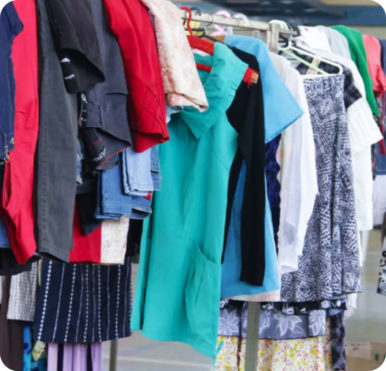
This is a place at our headquarters in Blumenau where donations are collected from company employees and anyone else who wants to help. We receive donations of clothing, food, non-perishables, school supplies, shoes and toys. The donations are available to employees who may need them.
Responsibility for social and environmental sustainability actions is a permanent ethical stance of fashion companies in the market and in society, and is increasingly becoming the very basis of consumption.
However, responsibility for managing the planet's natural resources should not be restricted to the industry. Entrepreneurs, stylists, designers, shopkeepers and consumers need to get involved in this process, demanding effective measures from each segment.
Old habits must change, new practices must be adopted, actions must be renewed and technological innovations must be sought, remembering not only the preservation of the environment, but also the quest to guarantee human and labor rights, social equity and sustainable development for all.
